I don’t remember this happening. But it’s etched into my brain because I heard my father tell the story about a hundred times.

It went something like this:
One Saturday, when I was around five years old, I’d been outside playing. When I headed in for lunch, I waved at my father through the picture window of our little house, like always. Then I stepped onto the porch, and stood waiting for Daddy to open the front door for me.
He didn’t.
I waited some more. The door didn’t open.
I turned the knob. Locked.
Where’d he go?
I knocked.
DADDY (shouting): Who is it?!
Well, that was confusing. He just saw me.
ME: Me.
DADDY: Me who?!
ME (matching his tone): Susan Renée Dansby!
DADDY: What does Susan Renée Dansby want?!
ME: Susan Renée Dansby wants to come in!
And he let me in.
Looking back, I guess he and Mom were trying to teach me to ask who’s at the door before opening it. They succeeded in that. Plus, Daddy had his favorite story to tell.
In grade school, I’d perk up as soon as he started in with “when Renée was little…” As a jaded teen, I would roll my eyes with each retelling.
College only made me more judgmental of what I saw as my father’s failings. He was an alcoholic, and that made life difficult in countless ways. But, when I was 26, and he was dying? Well, I’d made enough of my own mistakes to forgive his.
After Daddy’s death, I viewed life with him through a new lens. And often recalled that tale from my childhood.
I saw beyond the roleplay regarding safety and straight through to the love that embraced me from behind that locked door. My father didn’t realize it, but that exchange taught me seven lessons. Lessons that got me jobs, won me awards, and—when faced with obstacles that seemed insurmountable—gave me the strength to keep fighting for my career.

Here they are:
1. Don’t open the door without knowing who’s on the other side.
When you book a meeting, find out what you can about the interviewer. Look for shared interests, or experiences so you have some easy talking points, and try to find answers to the following questions ahead of time:
- Where have they worked?
- What is their current position and what does that position entail?
- Are they active on social media?
- Have they written a book?
- Have they given a TED Talk or been part of an industry panel?
The average job interview is 45 to 60 minutes long. You don’t want to waste that time asking questions the interviewer already answered in a Hollywood Reporter article. Instead, you can mention the article, and use what you’ve learned as a jumping off point to ask deeper questions about what they’re looking for and what you can expect if you choose to work with them.
Your interviewer will appreciate not having to answer the same 20 questions previous applicants have asked.
Sometimes, you’re surprised by who’s in the room. When you arrive, there are unanticipated participants in the interview.
Again, know who’s behind the door. When you call to confirm the appointment, ask if only Ms. Jones will be in the meeting, or if there will be other people in the room.
Make note of any additional interviewers, and research them as well.
And yes, it is acceptable when you arrive for the meeting to ask the receptionist or assistant if there’s been any change in the meeting participants.
2. When a door appears to be locked, knock.
Often, doors are blocked by what I call the Assumption Lock.
That’s when people assume that because you’re younger than most, older than some, or a different pronoun than expected, you’re unqualified for a particular job.
The tool I’ve used most often to pick that lock is measurable skills: how fast you type, where you went to school, what you studied, or impressive previous employers. It comes in handy when you’re composing your cover letter, redoing your resume, and being interviewed.
Numbers can work well, too. I read over 1500 outlines and scripts in 18 months as a production secretary, which shows I’m a hard worker. You can say you’re good with people (opinion), or you can talk about how you kept a hundred extras happy during an all-night video shoot (proof).
Even telling the interviewers how many episodes of their show you’ve watched can impress them. Bonus points if you wow them with details you admired about the design, special effects, sound—whatever your area of expertise.
There is another lock, though, that is harder to break through. Every time you think you’ve mastered it, the cylinders reconfigure.
I call it the Self-Doubt Lock.
The same creativity that makes you brilliant in your work can trip you up with “what if’s.”
- What if I call and they think I’m too pushy?
- What if they hate my audition, my headshot, my portfolio, or reel?
- What if they’ve filled the job and I’m wasting my time?
It’s all possible. But if you don’t try—if you don’t introduce yourself during an industry function or follow up because you decide the person who offered you help was “just being nice”—it’s a sure thing you could miss the opportunity of a lifetime.
Knock on that door with confidence and prove to yourself and to them you have the skills and personality to benefit their team.
3. Introduce yourself with enthusiasm.
Don’t worry, being in entertainment doesn’t mean you have to be boisterous or wild.
You don’t have to shout your name every time you walk into a room—unless that’s your thing.
Introducing yourself with enthusiasm means smiling when you meet people, so when you say, “it’s nice to meet you,” they believe it and they know you’re excited to be there.
It also means when you’re asked what you do, you don’t withdraw and mutter. Look people in the eye and answer that question the same way you’d tell them what neighborhood you live in. Share your job passion with the same delight you’d have when describing your favorite restaurant.
“I’m a sound editor,” or “I’m a singer” doesn’t have to be surrounded by exclamation points. But you shouldn’t be shy about it, either. Quiet confidence is impressive.

4. Don’t let the scary voice intimidate you.
Imagine the worst-case scenario.
Just when you’ve built up the courage to ask for a meeting or submit your resume, you encounter someone who tells you no way, no how, forget about ever succeeding in this industry.
This Negative Nudwick’s criticism leaves you so crushed, you’re ready to quit.
But before you let one person’s opinion push you into bailing on your dreams, consider this:
Is what you think happened what really happened?
There’s this misunderstanding that sometimes occurs while job hunting. You’re so busy freaking yourself out, what gets said isn’t what you hear.
Maybe you called to confirm an appointment, and an assistant or secretary tells you: “Mx. Smith isn’t available this week.”
What you hear is: “How dare you call Mx. Smith! There’s no appointment for you. They don’t know you, don’t want to know you, and will never allow you to appear in their presence!”
Upset, you hang up, defeated and demoralized.
We’ve all been there.
It’s tough, I know, when you’re nervous and on the spot; but you must learn to respond to what people say—not what you think they said.
In a directing interview, an executive producer told me he didn’t like the camera cuts in my reel. There was a montage, and he hated the dissolves between scenes.
And yes, he used the word “hated.”
I told him I understood. Some people don’t like dissolves, but they were called for in the script. I promised if he hired me to direct his show, I wouldn’t include any dissolves unless ordered by him to do so.
And yes, I got the job.
Don’t do rewrites in your head. Address the specific criticism.
“I hate dissolves” isn’t “I hate your work” or “you’re untalented and useless.” It is “I hate dissolves.”
And if the scary voice gives you a clear and final “no”? What then?
“No” is not a judgment. It’s not even a criticism. It’s a choice that person is making about you working with them at that time, and on that project.
To combat my “I’ll never work again” funks, I made a “they’ll never work again” list.
It included people like Michael Jackson (told he’d never be successful without his brothers), Steven Spielberg (rejected by USC Film School three times), Meryl Streep (told she wouldn’t have a career past 40) and Mindy Kaling (who was told she wasn’t right for the part—playing herself).
Make your own list of heroes who flew past the “no’s” and succeeded.
And remember there are hundreds of movies, TV series, daytime dramas, game shows, circuses, concerts, etc., in production every day; and you only need one job at a time.
Embrace each “no” as “next,” and keep it moving.
5. Know what you want.
A personal assistant isn’t the same as a writer’s assistant, which is a far cry from a production assistant.
To further complicate things, a non-union production assistant gets paid less (most of the time) than a Directors Guild of America production assistant.
f you’re just entering the entertainment industry, figure out what the job you want is called. Then research that job and similar jobs.
Talk to people who have worked or are currently working in those positions.
Why is it important to do this kind of research?
When you ask an executive producer to hire you for his daytime drama’s writing staff, but you don’t know the difference between a Head Writer and a Breakdown Writer, you may blow it by being unprepared.
This information has an added benefit. You can find out what jobs you would loathe, like, or love.
When I was looking for directing gigs in LA, I got the chance to observe a couple of films and sitcoms being shot. I came away knowing for certain that directing soaps was what I enjoyed and what I wanted.
Also, if you’re still figuring out what you want to do, it’s smart to observe or work in different jobs in the industry. Any chance you get to be on a professional set—take it. There’s always something to learn from that experience.
If you’re going to put serious effort into getting a great job, make sure that job checks all the boxes for you.
6. Say what you want.
Do you know why most people don’t get promotions?
They don’t tell the person with the power to give them the promotion that they want it.
I’ve been a member of this club, and there’s nothing more self-defeating.
My first TV job was an entry-level position on Guiding Light. I made it clear to the executive who hired me that I wanted to direct, and she assured me that after six months, we’d talk about working toward that position.
Six months later, that conversation didn’t happen, and the bitterness and resentment seeped in.
Three months after that, I told my boss how upset I was about being overlooked. She told me that since I hadn’t brought it up; she didn’t think I wanted it anymore.
Oops.
After that conversation, I got a promotion and took my first step toward directing. It was that simple.
Did I learn from the mistake? Nope. Kept making it.
When my boss left to take another job, instead of sitting down with her successor to chat about my goals, I assumed he would know I was on a career path to directing. Big mistake!
It was three years before I made it into the director’s chair, and I had no one to blame for the delay but myself.
Bosses don’t read your mind, nor do they pass notes to the next-exec-in-line about the wants and needs of everybody working for them.
Do not wait to be asked what you want. The person with the power to give you your dream won’t know your goals unless you tell them.

7. Your childhood stories can get you great entertainment industry jobs.
I never told the door story in a job interview, but I took my parents’ belief in me into every meeting. The stories of my life have brought me confidence, focus, and strength. They have enriched me.
You have stories from your childhood that can do the same.
When did you first connect with your passion for drama, music, or art? Was there a moment when you were courageous or hilarious? Were there ten seconds that made your life better?
Everybody loves a good story—particularly people who create stories for a living.
Keep those stories close at hand, and the next time you’re in an interview, when someone says, “tell me about yourself,” you won’t have to hesitate. When they open that door, you’ll just walk through.


